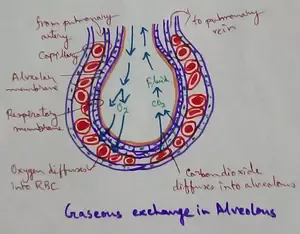Weather Changes
The sun affects the daily weather changes. There is very pleasant weather when the sun rises. When it goes up in the sky, it begins to shine brightly. We feel very hot at noon.
In winter we enjoy the sunshine at noon but in summer it becomes unbearable. The scorching sun rays tend to burn us in summer and the land becomes too hot. In evening when the sun goes to the horizon, the hotness subsides. Summer nights are pleasant while the winter nights are very cold. Thus, in every season the weather keeps on changing.
The heat of the sun causes the wind to blow. When the Sun shines brightly, it heats the land. This causes the air above it to get heated up. Warm air is lighter than cold air, so it rises up. Cool air rushes to take its place.
The heat of the sun causes land and sea breezes. In coastal areas the wind blows from the sea to the land during the day. This is called sea breeze. During the night the wind blows from the land to the sea. This is called land breeze. Land and sea breezes occur because of the Sun.
Evaporation and condensation:
Evaporation of water takes place all the time but, it is faster if the water is heated for example, by the Sun.
The water vapour is cooled when it comes in contact with the cool plate. It changes back to water and this is called condensation.
Why does the sea breeze blow during the day?
During the day the land gets heated up more than the water in the sea. The air above the land is warmer and it rises up. Cool air from the sea blows to take its place. So the wind blows from the sea during the day.
Why does the land breeze blow during the night?
At night land cools down faster than water. So the water is warmer than the land. The warm air above water rises up. The cool air above land rushes to take its place. Thus land breeze blow during the night.
From Weather Changes to HOME PAGE
Recent Articles
-
What Is Plasma? | Blood Plasma | Proteins | Nutrients | Cholesterol
Nov 07, 25 10:29 AM
Blood is a mobile fluid which is a connective tissue and is derived from the mesoderm like cell any other connective tissue. Colour of blood is reddish and that flows inside the blood vessels by means… -
Disorders of Respiratory System | Tuberculosis | Pleurisy | Emphysema
Oct 28, 25 11:39 PM
Tuberculosis is very common disease and is caused by a type of bacteria called Mycobacterium tuberculosis. This disease causes different trouble in the respiration and infection of several parts of th… -
Regulation of Respiration | Respiratory Centres | Inspiratory Area |
Oct 14, 25 12:13 AM
Respiratory Centre is the area that controls the rate of respiration and it is observed to be located in medulla oblongata and pons. Respiratory Centre has the following will dispersed components like… -
Explain Transport of Gases | External Respiration | Tissue Respiration
Oct 09, 25 11:35 PM
In humans gaseous exchange is completed in the following ways the steps are - External Respiration or Breathing - Breathing in false taking in of Oxygen and giving out of carbon dioxide in the body. M… -
Kind and Number of Teeth | Location of Teeth in Mouth | Care of Teeth
Sep 11, 25 12:52 AM
Kind and Number of Teeth





New! Comments
Have your say about what you just read! Leave me a comment in the box below.